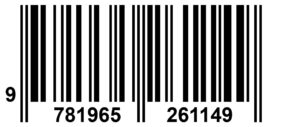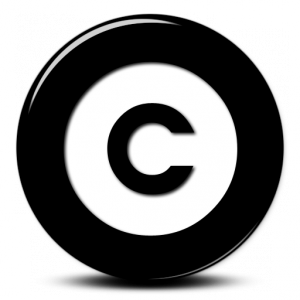Common Mistakes When Acquiring an ISBN and How to Avoid Them
Introduction
If you’re a new self-publisher, getting your book into the hands of readers is an exciting journey. But before you can share your story with the world, you’ll need to navigate the process of obtaining an ISBN (International Standard Book Number). The ISBN is a unique identifier for your book, crucial for distribution and sales. However, many self-published authors make mistakes when acquiring an ISBN, which can lead to headaches down the road. In this guide, we’ll cover the common mistakes authors often make when getting an ISBN and provide tips on how to avoid them. With the right knowledge, you can ensure that your book is properly registered and ready for success.
1. Not Understanding What an ISBN Is
The Mistake:
One of the most common mistakes new authors make is not fully understanding what an ISBN is and why it’s important. An ISBN is a unique number that identifies your title, author, and book information in databases and sales channels. It’s essential for selling your book in bookstores, libraries, and online retailers. Without an ISBN, your book might not be discoverable by potential readers.
How To Avoid It:
Before you begin the publishing process, take the time to educate yourself about ISBNs and their role in book publishing. Understand that each format of each title needs its own ISBN. This knowledge will help you make informed decisions and avoid issues with distribution.
2. Fall for ISBN Scams
The Mistake:
Unfortunately, there are scams out there that prey on new self-publishers. Some websites and companies offer to sell ISBNs at a low cost, but these ISBNs are often not legitimate. Using a fake or shared ISBN can cause major problems, such as being rejected by bookstores and online marketplaces, your book not being listed correctly, or being linked to another author’s work.
How To Avoid It:
Always obtain your ISBN from a trusted source. In the United States, ISBNs should be purchased from reputable providers like Publisher Services (isbn-us.com). This ensures that your ISBN is authentic and uniquely assigned to your book. Be wary of offers that seem too good to be true and verify the legitimacy of the source before making a purchase.
3. Using a Free ISBN Provided by a Publishing Platform
The Mistake:
Some self-publishing platforms, like Amazon Kindle Direct Publishing (KDP), offer free ISBNs to authors. While this might seem like a convenient option, it can limit your control over your book. The free ISBN is often tied to the platform, meaning you cannot use it if you decide to sell your book elsewhere.
How To Avoid It:
If you plan to distribute your book across multiple platforms or in different formats, it is best to purchase your own Publisher Package ISBN. This gives you full control and flexibility, allowing you to publish your book wherever you choose. Owning your ISBN also means that you, not the platform, are listed as the publisher, which can be important for your brand and credibility as an author.
4. Not Registering the ISBN Correctly
The Mistake:
Once you have obtained an ISBN, it is essential to register it correctly with the relevant databases. Some authors make the mistake of not providing accurate or complete information during the registration process. This can lead to issues with your book’s discoverability and sales.
How To Avoid It:
When registering your ISBN, double-check all the details you provide, including the title, author name, and book format. Make sure everything is accurate and consistent. Register your ISBN with the correct metadata to ensure that your book is properly listed in databases and available to retailers and libraries. Once the title and book information has been assigned, it cannot be changed.
5. Assigning the same ISBN for Different Formats
The Mistake:
Each version of your book—whether it’s a hardcover, paperback, or e-book, audio book, etc.—needs its own ISBN. A common mistake is using the same ISBN for multiple formats, which can cause confusion for retailers and readers. This mistake can also affect your book sales tracking and inventory management.
How To Avoid It:
Understand that each format requires a unique ISBN. When you’re ready to publish your book in different formats, be sure to purchase and assign a separate ISBN for each one. This will help avoid any issues with distribution and ensure that each version of your book is correctly identified.
6. Ignoring the Importance of Barcodes
The Mistake:
While ISBNs are crucial, they are often confused with barcodes. Some authors mistakenly believe that an ISBN alone is enough for their book to be sold in stores. However, many retailers require a barcode on the back cover of the book for scanning at checkout.
How To Avoid It:
Make sure you also obtain a barcode when you purchase your ISBN. Barcodes are essential for physical books sold in retail stores, as they allow for quick and easy scanning during sales. At ISBN US, we provide both ISBNs and barcodes, ensuring your book is fully prepared for the marketplace.
7. Not Planning for Future Editions or Revisions
The Mistake:
If you plan to release new editions or revisions of your book in the future, you’ll need new ISBNs for each one. Some authors overlook this and try to use the same ISBN for updated versions of their book, which can lead to confusion and problems with inventory.
How To Avoid It:
Plan ahead for the possibility of future editions or revisions. Each new edition or significant revision should be assigned a new ISBN. This helps keep track of different versions of your book and ensures that readers and retailers can easily find the correct edition.
8. Overlooking the Legal and Copyright Implications
The Mistake:
Some authors assume that obtaining an ISBN automatically protects their intellectual property or serves as a copyright registration. This misconception can leave your work vulnerable to unauthorized use or plagiarism.
How To Avoid It:
While an ISBN is important for identification and distribution, it does not provide copyright protection. Make sure you separately register your book with the U.S. Copyright Office to protect your intellectual property. This is an essential step in safeguarding your rights as an author.
Conclusion
Acquiring an ISBN is a crucial step in the self-publishing process, but it’s easy to make mistakes if you’re not informed. By understanding the role of ISBNs, avoiding scams, using your own ISBNs, and correctly registering and assigning them, you can ensure that your book is properly prepared for success.
At ISBN US, we’re here to support new authors by providing authentic ISBNs and barcodes, along with the guidance you need to navigate the self-publishing journey. Don’t let common mistakes derail your publishing dreams—get your ISBNs from a trusted source and set your book up for success from the start.
If you’re ready to publish your book or have questions about ISBNs, visit our website or contact us today. We’re here to help you every step of the way.








